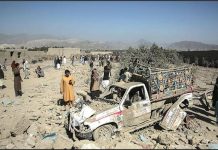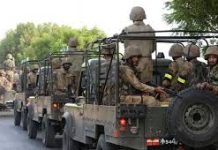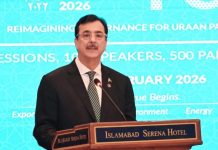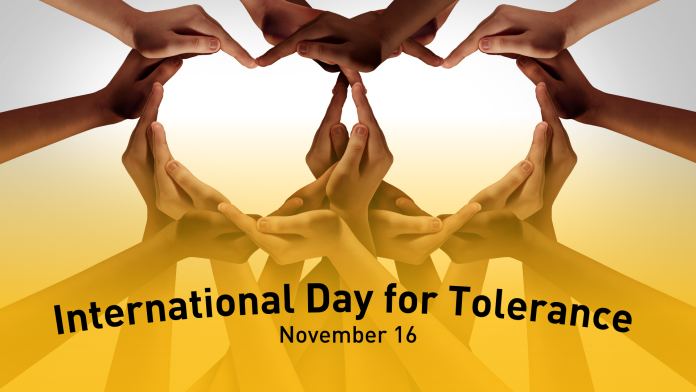
By Brig Syed Karrar Hussain Retired
Every year on 16 November, the world observes the International Day of Tolerance. The purpose of this day is to remind humanity that peace, development, coexistence, and social harmony are only possible when societies choose tolerance over hatred, dialogue over conflict, and wisdom over impulsiveness. In an age dominated by extremism, political hostility, ethnic conflicts, social unrest, and religious polarization, the significance of this day has become more vital than ever. For a sensitive and diverse nation like Pakistan, tolerance is not just a moral virtue—it is a strategic necessity for security, unity, and national development.
Background and Global Importance — In Interfaith, International Relations, and Societies
The International Day of Tolerance was introduced by UNESCO in 1995, at a time when the world was witnessing a rise in ethnic violence, religious extremism, and social fragmentation. The day was established to promote:
Respect for human dignity and freedom
Acceptance of differences as a natural part of human society
Interfaith harmony and peaceful coexistence
Dialogue among civilizations and cultural understanding
Tolerance is not merely a moral obligation; it is the foundation of global peace and the cornerstone of international diplomacy. Countries that embrace tolerance tend to develop stronger diplomatic ties, stable societies, and more dynamic economies. Conversely, intolerance breeds hostility, polarisation, and conflict.
In interfaith communities, tolerance acts as a bridge—allowing diverse religions and cultures to coexist peacefully. It promotes the understanding that harmony does not require uniformity but respect for diversity.
Teachings of Tolerance in the Light of the Holy Quran and Hadith
Islam stands as the greatest proponent of tolerance, patience, forgiveness, and respect for human dignity. The Quran and the teachings of Prophet Muhammad ﷺ emphasise broad-mindedness and gentleness even towards opponents.
1. No Compulsion in Religion — Acceptance of Human Freedom
Quranic Verse:
“There is no compulsion in religion.”
(Surah Al-Baqarah, 2:256)
This verse establishes the highest principle of human freedom and intellectual respect.
2. Harshness Drives People Away — Gentleness Attracts Hearts
Quranic Verse:
“Had you been harsh and hard-hearted, they would have dispersed from around you.”
(Surah Aal-e-Imran, 3:159)
The Prophet ﷺ is instructed that softness, empathy, and consideration are the foundations of leadership and social cohesion.
3. Repel Evil With Good — Moral Grandeur
Quranic Verse:
“Repel evil with that which is best.”
(Surah Al-Mu’minun, 23:96)
This teaches us that negative attitudes must be neutralised with positivity and good character.
4. True Strength is to Control Anger — Not Physical Dominance
Hadith:
The Prophet ﷺ said:
“The strong man is not the one who wrestles, but the one who controls himself when angry.”
(Sahih Bukhari)
5. Rights of Non-Muslims and Moral Excellence Toward Opponents
Through the Charter of Madinah, the Prophet ﷺ established a model society where multiple religions and tribes lived peacefully under mutual respect and justice. Islam instructs fairness, compassion, and kindness even toward non-Muslims and ideological opponents.
These teachings collectively prove that Islamic civilization is built on tolerance, justice, respect, and human dignity.
Importance of Tolerance in Pakistan — Political, Ethnic, Sectarian, and Social Context
Pakistan is a diverse country with multiple ethnicities, languages, tribes, religious schools of thought, and political ideologies. This diversity is a strength—if combined with tolerance. But in recent years, intolerance has become one of the biggest social and national challenges.
1. Political Polarization and Hostile Rhetoric
Political differences have escalated into personal hatred, abuse, and sometimes violence. Social media has deepened polarization, making dialogue and reconciliation difficult.
2. Ethnic and Provincial Bias
Punjabi, Sindhi, Baloch, Pashtun, Seraiki, Gilgiti, or Muhajir—all are integral parts of Pakistan. Yet ethnic biases sometimes turn into hostility, damaging national unity.
3. Sectarian Tensions
Pakistan comprises various Islamic schools of thought, each with its own intellectual traditions. Unfortunately, intolerance among a few extremist elements has caused sectarian tension. The majority desires peace, but a handful of intolerant mindsets cause disharmony.
4. Marital and Family Conflicts Due to Lack of Tolerance
One often ignored dimension is domestic tolerance. Many marital conflicts, broken families, and emotional crises occur simply because spouses fail to respect differences, control anger, or practice forgiveness. Islam emphasises gentleness, patience, and compassion within households.
5. The Negative Role of Social Media
Rumours, character assassination, slander, and abusive language spread rapidly on social platforms. Social media has amplified intolerance and reduced civil dialogue. Strong ethical and moral guidelines are now essential.
Role of Tolerance in Nation-Building
For Pakistan to progress, tolerance must become a national habit. When a society embraces tolerance:
Political tensions decrease
Public trust in institutions strengthens
Ethnic conflicts diminish
Sectarian harmony improves
Family relationships strengthen
Youth turn away from violence
Moral values flourish
Creativity, dialogue, and cooperation rise
No nation can prosper without social harmony, and no social harmony can exist without tolerance.
Recommendations in the Light of Islamic Teachings
To promote tolerance in Pakistan, the model of the Prophet ﷺ must guide our national policies and daily interactions.
1. Do Not Turn Differences into Hostility
Disagreement is natural. Islam encourages respectful dialogue, not hatred. Accepting others’ perspectives is a sign of maturity and wisdom.
2. Avoid Backbiting, suspicion, and defamation
The Quran warns strongly against such behaviours:
“Do not backbite one another…”
(Surah Al-Hujurat, 49:12)
Backbiting, slander, and suspicion destroy families, communities, and nations.
3. Promote the Culture of Dialogue
The Prophet ﷺ always resolved conflicts through consultation, negotiation, and communication—not aggression. Pakistan needs political and religious dialogue at every level.
4. Tolerance in Marital and Family Life
Avoid harsh words in moments of anger
Forgive rather than react
Respect each other’s emotional needs
Focus on mutual responsibilities
Follow the Hadith:
“The best among you is he who is best to his family.”
(Tirmidhi)
Family stability is the foundation of a stable nation.
5. Character-Building Through Education
Schools, colleges, and universities should teach:
Ethics and morality
Emotional intelligence
Seerah of the Prophet ﷺ
Stories of Sahaba and Ahl-e-Bayt about patience and forgiveness
Respect for different cultures and communities
6. Guidance by Religious Leaders
Friday sermons and religious lectures should promote unity, love, and moderation—not sectarian superiority or hate-driven speech.
7. Ethical Role of Media and Social Media
Media must discourage hate-filled debates, toxic political arguments, and irresponsible commentary.
Social media regulation should encourage respectful communication, truthfulness, and accountability.
8. A National “Tolerance Policy”
Pakistan can strengthen its social unity by adopting:
A national curriculum on tolerance
Interfaith harmony councils
Provincial dialogue centres
A political code of conduct promoting respectful debate
Community programs based on Seerah, ethics, and empathy
Conclusion
At a time when the world is suffering from wars, discrimination, extremism, and divisions, the International Day of Tolerance provides a powerful reminder that humanity can only progress through respect, acceptance, and dialogue. The Quran and Sunnah offer a complete code of tolerance—teaching patience, forgiveness, and dignity for all.
If Pakistan embraces tolerance as a national value, it can reduce political hostility, eliminate sectarian hatred, minimise ethnic divisions, and strengthen the family system. Tolerance is not a weakness; it is the strength that elevates nations and societies.
By adopting Islamic teachings and practising tolerance in daily life, Pakistan can emerge as a peaceful, united, and morally strong country—an example for the entire world.

























